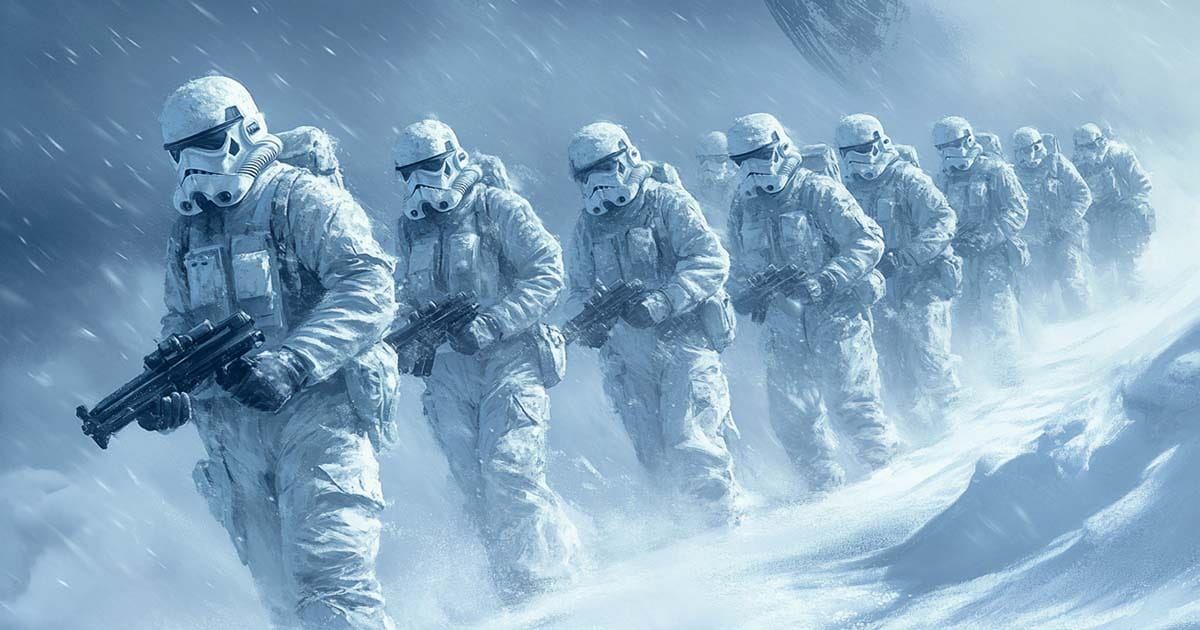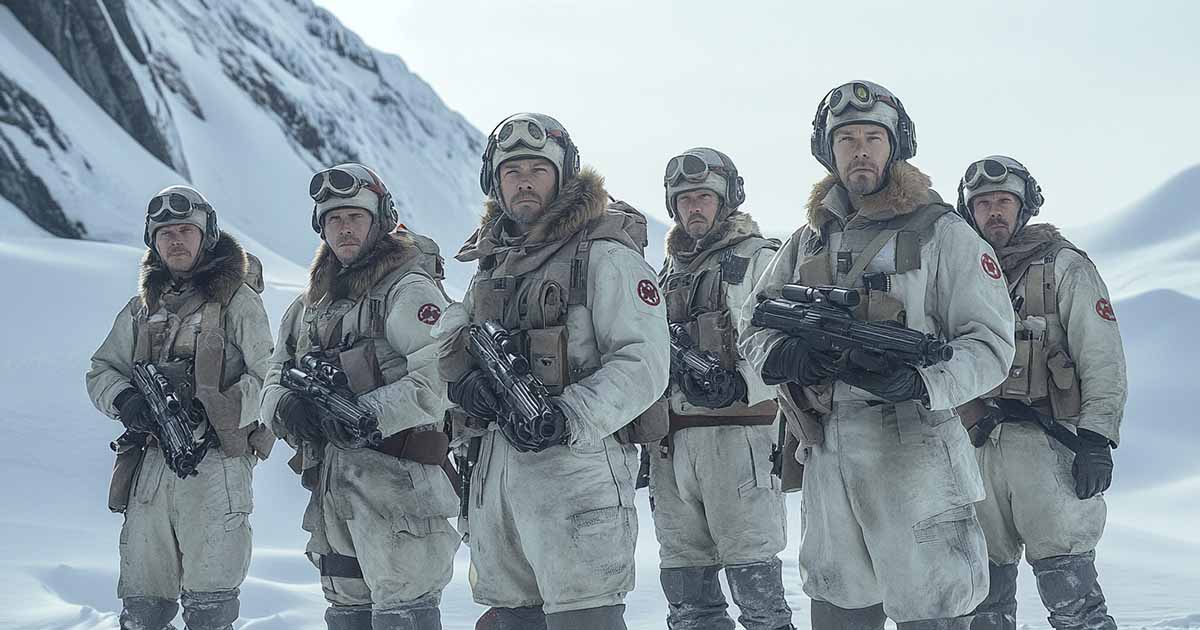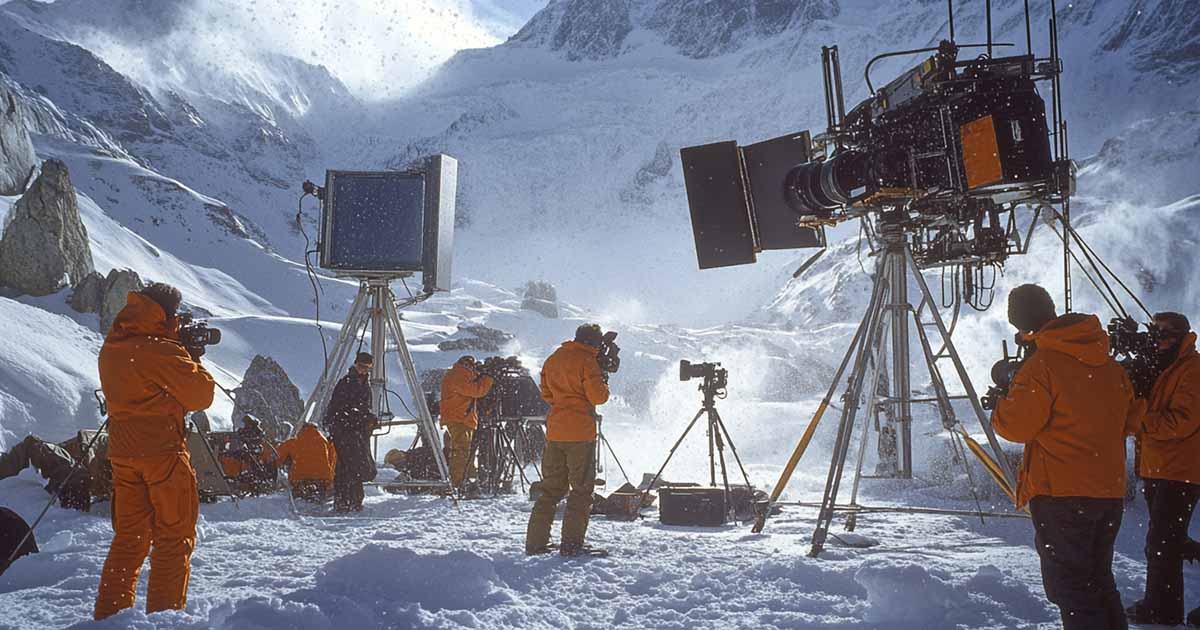The Day the Rebels Called the Red Cross
Real-life Norwegian Red Cross volunteers helped film the icy Hoth scenes in "The Empire Strikes Back," bringing authentic survival skills to one of sci-fi’s most iconic battles.

The Day the Rebels Called the Red Cross
When viewers think of the Rebel Alliance battling walkers on Hoth, they picture brave actors freezing in costume. What they don’t expect is that many of those troopers were real-life Norwegian Red Cross volunteers. In 1979, while filming the icy scenes of "The Empire Strikes Back," the production crew faced arctic conditions in Finse, Norway. To survive and film, they called on the locals.
These volunteers were trained in skiing, mountaineering, and winter rescue. They knew how to move across snow without sinking and how to stay warm in deep cold. The production team quickly realized they weren’t just helpful—they were ideal. So they suited them up as Rebel soldiers.
The Men Behind the Goggles
Every wide shot of snow trenches and scrambling troops now holds a secret. Those figures aren’t background extras pulled from a casting agency. They’re mountain men from a rescue corps with real-world experience. You’re watching survival experts ducking blaster fire and navigating drift-laden terrain with calm precision.

This decision wasn’t just about convenience. It added credibility to the scenes. These men didn’t act like soldiers—they moved like them. They trudged, climbed, and maneuvered with a discipline born from training.
Filming on the Edge of a Blizzard
Filming in Finse wasn’t for the faint of heart. Cast and crew were stranded in a hotel during one of the worst storms in years. Some shots were filmed just steps from the hotel’s back door. Yet the camera never flinched, and neither did the Red Cross men.
They built safe paths in the snow and showed the crew how to dress for long hours outside. They pulled people out of drifts, secured gear, and kept the shoot on track. They weren’t just in the movie—they helped make it possible. Their presence allowed the fantasy to hold together.
Bringing Real Survival to the Screen
Their expertise made the fictional war zone feel uncomfortably real. Even close-up, the breathing, bracing, and pacing all reflected real-world cold-weather knowledge. You can’t fake that. You hire it or you lose it.

What Lucasfilm gained was more than just extra hands. They gained authenticity. Snow whipped across the screen, and the troopers moved as if they understood the stakes. Because for the men inside those uniforms, it wasn’t fantasy—it was familiar.
When Reality Strengthens the Rebellion
There’s something fitting about this quiet alliance. A fictional rebellion needed help, and real rescuers answered the call. It’s science fiction grounded in reality. It’s also a lesson in knowing when to let the experts lead.
No one remembers the names of those Red Cross volunteers. They didn’t ask for attention. They simply did what was necessary. That kind of modest competence lingers in every frame.
Sometimes the best moments in a film don’t come from effects or costumes. They come from good judgment. Trusting the land, trusting the people, and letting reality shape fiction.
So the next time you watch "The Empire Strikes Back," study those Rebel troops. You’re not just seeing movie magic. You’re seeing real men facing the cold and helping a galaxy hold the line.

